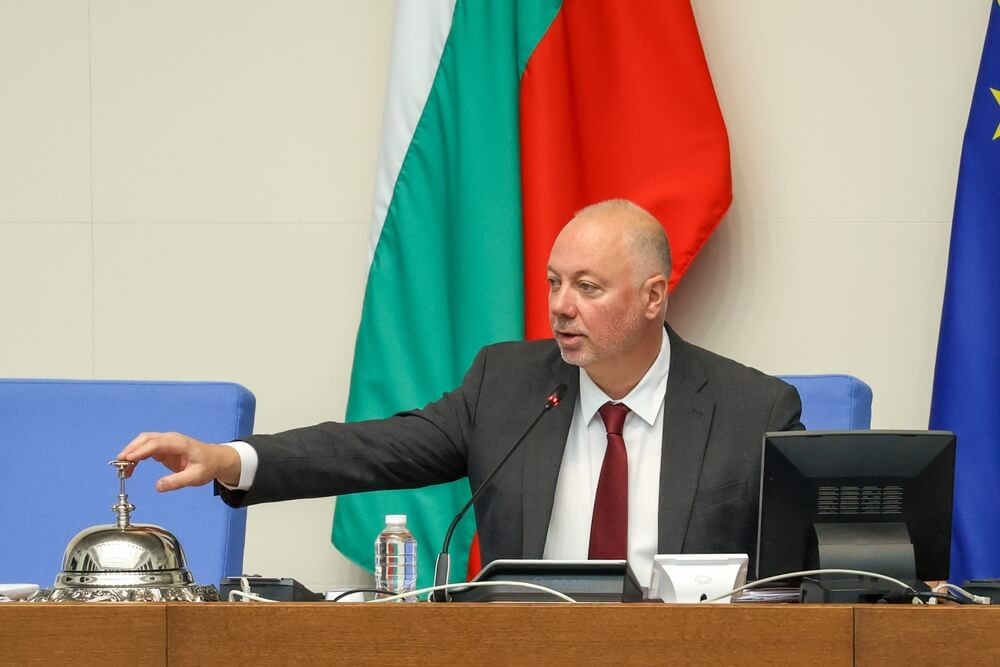After a record-long institutional vacuum and seven parliamentary elections in just four years, Bulgaria finally secured a government. The political elites have realised that endless procrastination creates a dangerous apathy among the citizens, but the compromise they have reached still leaves many reasons for caution about whether Bulgaria is finally entering a more stable period.
In terms of the ideology and programme the new governing coalition is very colourful. The centre-right GERB party, which won the most votes in a series of extraordinary parliamentary elections, dominates the coalition, but not enough to unite partners for a majority.
Boyko Borisov, the leader of GERB and former prime minister for three terms from 2009 to 2021, remains the dominant political figure, although his associate and former parliamentary speaker Rosen Zhelyaskov will lead the government in his place.
Many Bulgarians are concerned about the continuation of widespread corruption, pressure on the media, and the misuse of EU funds as Borisov and GERB continue to form the backbone of the government.
These problems, followed by months of massive street protests, led to the fall of Borisov's last government in 2021, plunging the country into a protracted period of political instability and paralysis.
The role of pro-Russian socialists
The composition of the new government bloc also casts doubt on the country's future. Borisov's GERB has joined forces with the former communists, the pro-Russian Bulgarian Socialist Party.
The socialists, the heirs of the former communists, consistently reject Bulgaria's support for Ukraine in defence against Russian aggression. They have also demanded in parliament that Bulgaria, despite being a member of NATO, should not participate in possible operations of the alliance in Ukraine and should not supply weapons that could potentially target Russian territory.
In addition, the socialists are consistently opposed to the implementation of the adopted green agenda, which favours reducing coal-fired power generation and ending Bulgaria's dependence on Russian energy imports.
Almost a third of the nation had a favourable opinion of Russia and Vladimir Putin before the Russian aggression against Ukraine
Although the pro-Russian socialists will only be a minor partner in the new government in Sofia, their influence on future decisions will not be insignificant. One reason for this is the very narrow majority with which the government was elected in parliament, only four votes more than the required majority, to which the Socialists contributed decisively. The second reason is the still widespread pro-Russian sentiment that prevails among Bulgarians.
Almost a third of the nation (58%) had a favourable opinion of Russia and Vladimir Putin before the Russian aggression against Ukraine, and this relationship has not drastically deteriorated in the last three years.
Joining the eurozone
Achieving the strategic goal of joining the eurozone, as envisaged by the August 2024 law and a number of previous decisions by the Bulgarian government and central bank, will be an important test for the GERB government of Rosen Zhelyaskov.
In his inaugural speech, Prime Minister Zhelyaskov described joining the eurozone as one of his cabinet's main tasks. However, the Socialists remain reluctant to introduce the euro, leading to the removal of the term "pro-European" from the coalition agreement to form the government.
The socialists are stepping up their efforts to oppose the introduction of the euro
In view of the citizens' continuing resistance to the single European currency, the socialists are stepping up their efforts to oppose the introduction of the euro. The widespread fear of rising prices and the loss of control over economic policy divides Bulgarians on this issue by 49 to 49%.
However, Bulgaria's economic parameters, particularly its low inflation (expected to be around 2.3% in 2025), low unemployment (around 4%), and low debt (around 25% of GDP), qualify the nation to join the eurozone soon.
Unfreezing support from the EU
In this respect, the formation of a new government will be an important incentive, as the absence of a stable government has created a political and institutional vacuum that has significantly hindered Bulgaria's progress towards joining the eurozone.
 The coalition partners' different orientations limit the government's prospects for long-term stability - PM Rosen Zhelyaskov
The coalition partners' different orientations limit the government's prospects for long-term stability - PM Rosen Zhelyaskov
GERB leader Borisov assures that the new government will remain faithful to its alliance within the EU and NATO, understanding the importance of restoring the EU's reduced incentives for the recovery of one of the EU's weakest economies.
On the other hand, scepticism about the government's ability to respond to European demands to curb corruption makes its prospects appear very uncertain. Additionally, the coalition partners' different orientations limit the government's prospects for long-term stability, making it difficult to create strong, shared platforms.
Achieving the goal of joining the eurozone would be the maximum that the new government can realistically expect during its term. With the recent grant of full membership in the Schengen Zone, Bulgaria could potentially navigate somewhat more stable political waters if this happens this year.